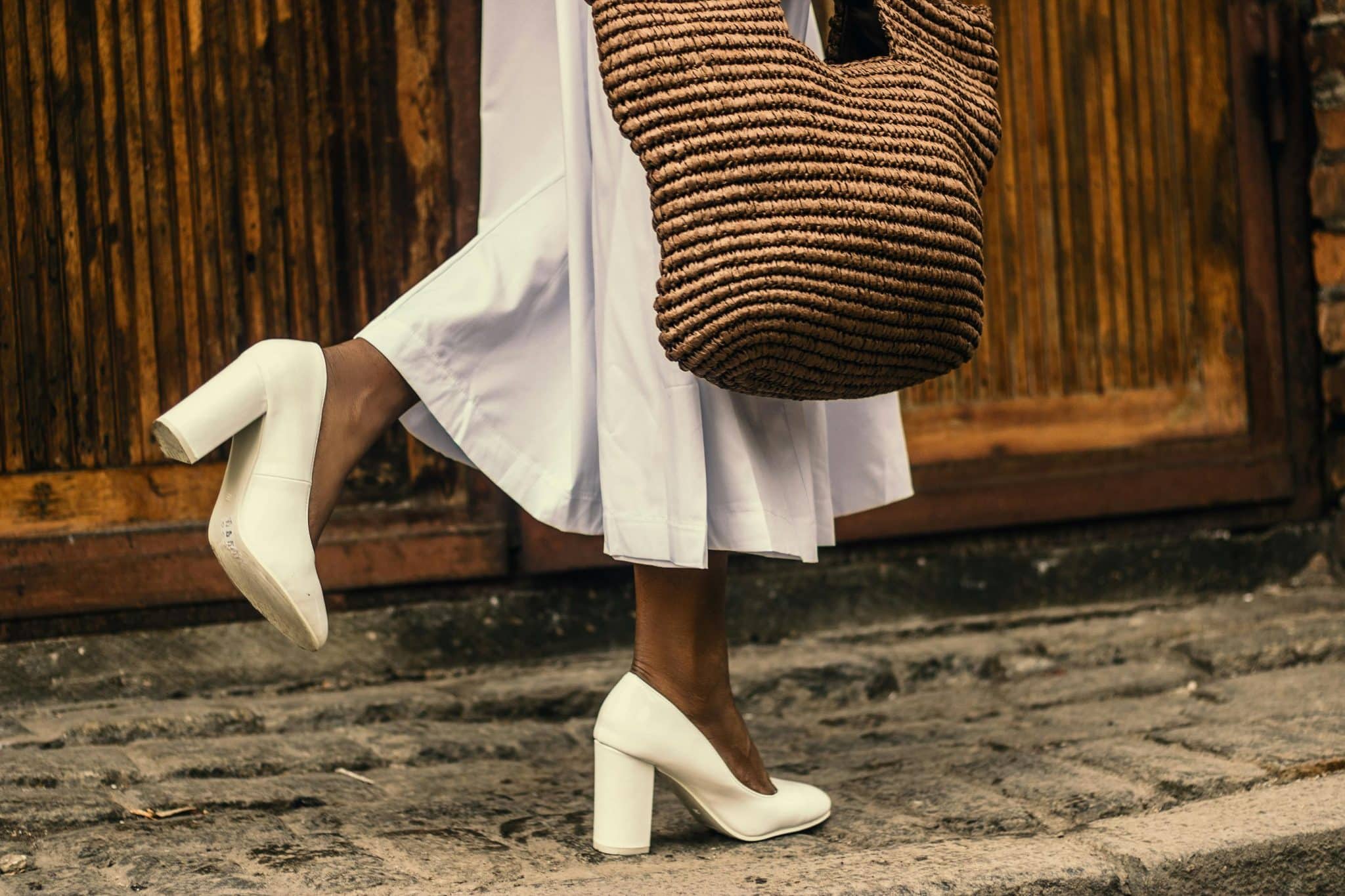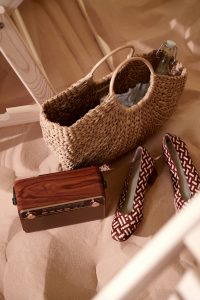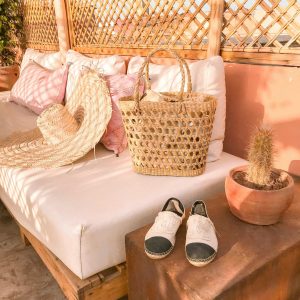You found our list of Sustainable Fashion Brands!
In a world where consumerism often moves at breakneck speed, sustainable fashion offers a breath of fresh air. For women seeking elegance with intention—those attuned to wellness, self-care, and the mindful rhythm of NYC city living—ethical style has become more than a trend. It’s a lifestyle. Whether walking through SoHo in minimalist flats or lounging in breezy loungewear, today’s style icons are asking not only how clothes look, but how they’re made—and what they stand for.
This list of sustainable fashion brands is similar to Clean Activewear: The Intersection of Fashion, Wellness, and Sustainability.
This article includes:
- sustainable clothing brands
- sustainable fashion
- slow fashion
- sustainable bags
Let’s get to it!
15 Sustainable Fashion Brands Worth Knowing
When you do decide to bring something new into your closet, look toward brands that prioritize people and planet. These labels are shaping the future of fashion with intention, transparency, and beauty.
1. ALOHAS
Based in Spain, ALOHAS operates on an on-demand model—meaning your shoes are made after you place the order. This reduces overproduction, waste, and ultimately, the impact on the planet. From strappy sandals to bold boots, their silhouettes are endlessly wearable.
Learn more about Alohas.
2. Whimsy + Row
Crafted in small batches in Los Angeles, this brand uses deadstock fabrics and low-impact dyes. Whimsy + Row embodies the carefree yet refined vibe of California living—with linen sets and silk tops made for brunches and gallery strolls alike.
Learn more about Whimsy + Row.
3. Miakoda
Miakoda creates loungewear with an edge. Ethically made in NYC, their clothing is inclusive, plant-based, and unbelievably soft. It’s a cozy uniform for those who move through the city with both grace and grit.
Learn more about Miakoda.
4. FUTURA Jewelry
Jewelry tells stories—and FUTURA tells one of sustainability and fine craftsmanship. They use Fairmined gold and ethical sourcing practices to create sculptural, timeless pieces that are as much art as accessory.
Learn more about FUTURA Jewelry.
5. 1 People
A slow-fashion brand that puts transparency first. With Scandinavian design roots, 1 People offers minimalist wardrobe essentials made from eco-innovative materials like Piñatex (pineapple leather) and TENCEL.
Learn more about 1 People.
6. Raven + Lily
Empowering women artisans across the globe, Raven + Lily focuses on artisan-made goods—from elegant jewelry to handwoven handbags. This is globally-minded fashion with a soul.
Learn more about Raven + Lily.
7. LA Relaxed
Casual never looked so considered. LA Relaxed creates easy silhouettes from organic and deadstock textiles. Their production facility is located in downtown Los Angeles, promoting local, ethical employment.
Learn more about LA Relaxed.
8. Nui Organics
Ideal for layering through the seasons, Nui Organics crafts versatile pieces using organic merino and organic cotton. This brand is especially beloved for elevated basics that last beyond trends.
Learn more about Nui Organics.
9. Rujuta Sheth
With a background in textile design, Rujuta Sheth’s collections marry sharp tailoring with draped comfort. Produced in ethical factories in India, her pieces are made for movement, light, and layering.
Learn more about Rujuta Sheth.
10. Christy Dawn
Known for their dreamy dresses, Christy Dawn uses deadstock fabrics and regeneratively farmed cotton. Their “Farm-to-Closet” approach exemplifies holistic sustainability from soil to seam.
Learn more about Christy Dawn.
11. Kotn
Kotn works directly with cotton farmers in Egypt to ensure fair labor and traceability. Their ultra-soft basics are made to be worn daily—and cherished long-term.
Learn more about Kotn.
12. Blooh
Blooh crafts responsibly sourced, handmade pieces in Nairobi, Kenya, in collaboration with local artisans and global partners who uphold fair wages and worker wellbeing. Each design carries the imprint of care—from the sourcing of materials to the skilled hands that shape them. Blooh’s pieces aren’t just accessories—they’re quiet declarations of dignity, sustainability, and global artistry.
Learn more about Blooh.
13. Cuyana
With their mantra “fewer, better,” Cuyana focuses on elevated staples made with craftsmanship and care. Think structured leather totes, cashmere layers, and silk shirts that whisper luxury.
Learn more about Cuyuna.
14. Tradlands
Tradlands reimagines menswear-inspired staples for women, focusing on high-quality fabrics, thoughtful tailoring, and timeless design. Born from a desire for better basics, the brand creates versatile essentials built to last—and built to feel like you.
Learn more about Tradlands.
15. Reformation & Everlane
Let’s talk honestly—Reformation and Everlane often come up in conversations around sustainable fashion, and while they’ve made strides in transparency and fabric choices, their scale and marketing can sometimes blur the full picture. They’re worth keeping in your rotation—but perhaps balanced with deeper dives into truly slow, small-batch brands.
Learn more about Reformation and Everlane.
Why Sustainability Should Begin in Your Own Closet
Before adding anything new to your wardrobe, pause. The most sustainable fashion choice you can make is to rewear what you already own. Mix and match those timeless pieces. Host a clothing swap with friends over wine and playlists. Try rental services like Nuuly, which offer an ever-rotating selection of styles without the commitment of ownership. And don’t forget the treasure troves of vintage and second-hand stores that dot the city—you’ll often find better craftsmanship, unique silhouettes, and a smaller carbon footprint.
Small Actions with Big Impact
Even the most luxurious wardrobe can—and should—exist in harmony with the planet. Mindful shopping doesn’t mean sacrificing beauty or sophistication. It means refining your eye and elevating your choices.
Shop less. Choose better. Wear longer.
And when in doubt, ask: Who made this? How was it made? What impact does it leave behind?
Final Thoughts
Sustainable fashion isn’t about perfection—it’s about progress. It’s about dressing with purpose, finding joy in fewer things, and aligning your outer world with your inner values. For women who cherish clean beauty, thoughtful living, and timeless style, it’s the natural next step in the journey of self-care. Clothes should not only fit your body—they should fit your beliefs.
Enjoyed this article? Next, check out Sustainable Beauty for Earth Month: Easy Swaps for a Greener Beauty Routine.






